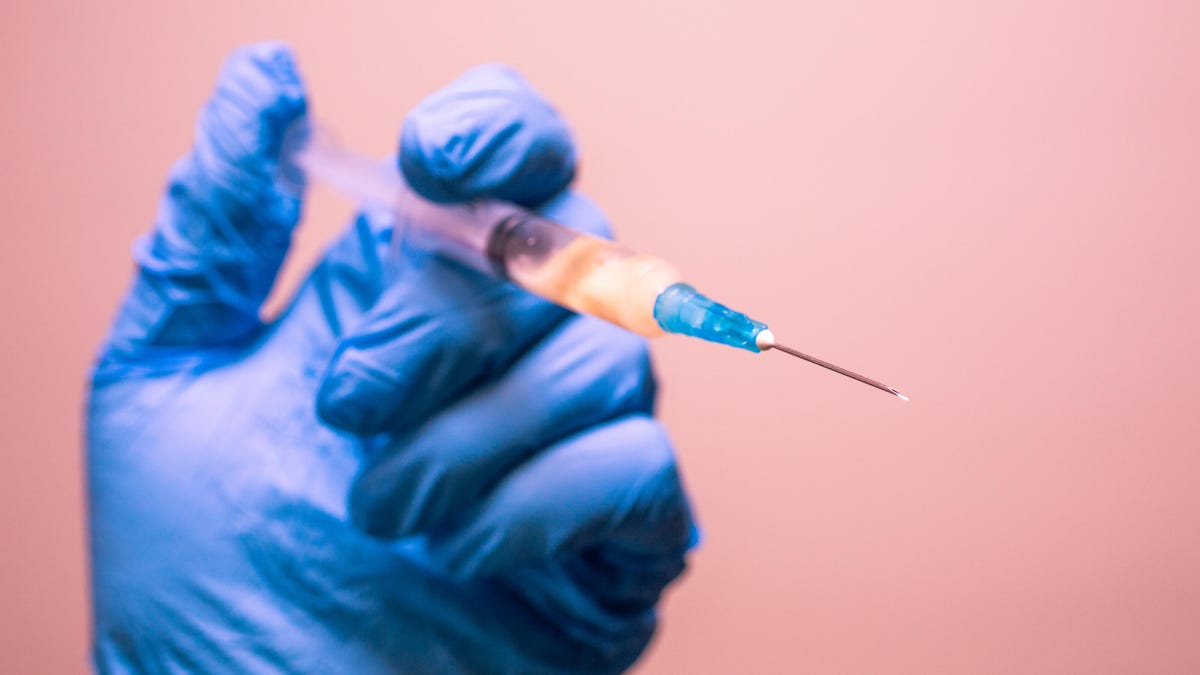FDA authorizes Moderna, Johnson & Johnson booster shots for many Americans
The administration also says it'll allow eligible people to "mix and match" different COVID-19 shots when they get their booster.

More COVID-19 boosters could soon become available.
The US Food and Drug Administration on Wednesday amended its emergency use authorizations for Moderna's and Johnson & Johnson's COVID-19 vaccines, allowing the use of a booster shot for some Americans.
The FDA now allows for a single booster dose of Moderna's COVID-19 vaccine to be administered to individuals at least six months after their initial two shots for those who are 65 years and older, those who are 18 to 64 years old at high risk of contracting a severe case of COVID-19, and those ages 18 to 64 "with frequent institutional or occupational exposure" to the coronavirus, the administration said in a statement.
A single booster dose of the Johnson & Johnson vaccine can be administered at least two months after individuals 18 and older receive the initial COVID-19 vaccine.
The FDA also greenlit the option for eligible people to "mix and match" vaccines when getting their booster, meaning someone who got one kind of vaccine for the initial dose could get a booster shot of a different vaccine.
"As the pandemic continues to impact the country, science has shown that vaccination continues to be the safest and most effective way to prevent COVID-19, including the most serious consequences of the disease, such as hospitalization and death," Acting FDA Commissioner Dr. Janet Woodcock said in a statement. "The available data suggest waning immunity in some populations who are fully vaccinated. The availability of these authorized boosters is important for continued protection against COVID-19 disease."
The move comes after the FDA last month approved Pfizer's COVID-19 booster shot for adults who are 65 and older or at-risk. The Centers for Disease Control and Prevention then approved Pfizer's booster shot for those Americans.
Earlier this month, an advisory panel to the FDA unanimously recommended a booster shot of both Moderna's and Johnson & Johnson's COVID-19 vaccines for certain individuals. The CDC and its vaccine advisory committee will still need to sign off on the boosters before they become available to Americans. The committee is scheduled to meet Thursday to discuss Moderna's and Johnson & Johnson's booster data, according to CNBC.
The COVID-19 vaccines are highly effective at preventing hospitalization and deaths. More than 99% of COVID deaths are of unvaccinated people, Dr. Anthony Fauci, the president's chief medical advisor, told CBS in early July. And people who aren't fully vaccinated were more than 10 times more likely to be hospitalized and 11 times more likely to die from COVID-19 in the spring and summer, compared with those who are fully vaccinated, The Washington Post reported. Over 57% of the US population is fully vaccinated against COVID-19, according to the CDC.
While boosters could provide added protection to millions of Americans, only around 2.8% of people in low-income countries have received at least one dose of the COVID-19 vaccine.

